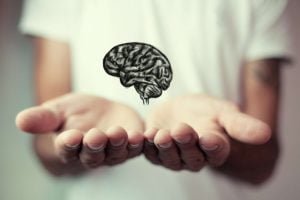Many parents do not believe their children can undergo mental stress or have mental health issues. Favour Ozioma Ogbodo writes that children can be affected by this problem and provides ways on how to address them.
The state of a child’s mental health has a direct impact on his or her attitude, productivity and overall health. According to the Centre for Disease Control and Prevention (CDC), being mentally healthy is important for a child to reach development and emotional milestones, as well as learning healthy social skills and how to cope where there are problems.
The agency added that mentally healthy children have a positive quality life and can function well at home, in school and in their communities. Each of these children get to develop and be socially and mentally okay in midst of problems
But in Nigeria, many mothers are ignorant of this important information. African Health Report (AHR) spoke to some mothers on this matter. Mama Joy, as she said she should be called, said she does not know if her child gets mental stress or mental issues. According to her, he can get aggressive or angry, and she addresses that problem by giving him money.

“I don’t know what to do when my child is mentally stressed. I don’t know what mental health means. When my child is aggressive or angry, I give him money to get something,” the single mother and trader in Lagos stated.
On the other hand, ‘Mrs Amaka Jennifer is aware of the impact of mental health problems on the overall wellbeing of her child. She stated, ‘When my 14-year-old son keeps to himself, I know he is stressed out and this is mostly from his studies, so I give him extra attention until I know he is okay.”
How do I know my child is mentally stressed?
The United Nations International Children Emergency Fund (UNICEF) Parenting Channel says that at age 0-3, children show mental stress by clinging to their care givers more than normal, or regresses to former (younger) behaviour. Additionally, the child’s sleeping and eating patterns changes. They display high irritability, increased hyper activity, are more afraid of things, more demanding and cry more frequent.
For ages 13-17, they show intense grief, excessive concern for others, feeling of guilt and shame, increasingly defiance for authority, increased risk taking, are aggressive, self-destructive, feeling of hopelessness.
Addressing Mental Health Issues in Children
Dr. Oluyemi Ogun, a Lagos-based child psychiatrist and a former Medical Director at Psychiatric Hospital, Yaba, in an interview with the African Health Report (AHR) listed genetic, biological and environmental factors as contributors to mental health issues.
She also listed parenting styles, poverty and drug abuse as potential causes, adding that early detection is crucial, with changes in behaviour and academic performance serving as key indicators.

According to her, mental health issues can be gotten genetically and biologically, sometimes due to brain injury and exposure to trauma. She also added that environmental factors like unsettled homes as a result of tension between the parents could mental stress.
‘’Parenting style and poverty can cause mental health issues in children. Other causes include developmental problems like cerebral palsy. This problem is usually caused by poverty and parental issues. During antenatal, a mother may be told to go through operation (caesarian section) if the fetus is too big and they go to deliver in churches or mosques instead. The stress of giving birth to a child in a place without proper medical assistance can cause cerebral palsy. The issue of drug abuse in adolescence can contribute to mental disorder.’’
Early Detection: Signs to look out for
Early childhood development should be handled with care and quick detection, Dr. Ogun said, adding that if a child is not socialising and interacting with the parents, keeps to his or herself or the child’s grade drops suddenly, it is a pointer that the child is stressed out or having mental issues.
Solution to Mental Health issues in children
WHO estimates that globally, 1 in 7 (14%) 10–19 year-olds experience mental health conditions, yet these remain largely unrecognised and untreated.
Dr. Ogun advocates for Mental Health facilities in Primary Health Care Centres, emphasising the need to integrate mental health education into school curricula. She also stated that breaking cultural and religious stigmas is crucial, and governmental investment in healthcare is essential for accessible and available mental health facilities.

She added, “Mothers should not see mental health issue as the end of the world, early detention goes a long way for good rehabilitation. Stop hiding a child with developmental challenges. No child is allowed to be locked away, be transparent so as to get solutions and needed help. Mental Health issue is just like every other sickness. The myth and tradition around it should be shunned away.
‘’Government should invest more in healthcare and health workers so as to prevent professionals from leaving the country and make the easy availability and access to mental health facilities,’’ the doctor stated.


